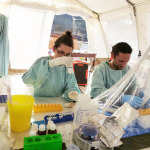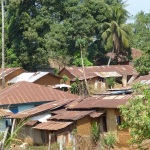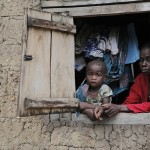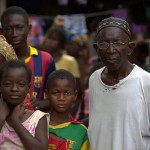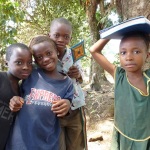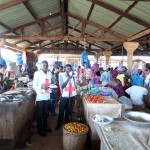It took the threat of a global health crisis to illustrate the failings of Africa’s health systems. Resilient health systems, free at the point of use, are evidently a global public good. They are essential for the provision of universal health coverage and for a prompt response to outbreaks of disease. Resilient health systems require long-term investment in the six key elements that are required for a resilient system: an adequate numbers of trained health workers; available medicines; robust health information systems, including surveillance; appropriate
Continue reading →
A component of the Ebola epidemic control policy in Sierra Leone is triage and isolation in decentralised Community Care Centres (CCCs) or Holding Units, from where transfer to Ebola treatment units (ETUs) is arranged for those diagnosed as positive. The epidemic is currently waning, there are sufficient beds in the ETU, yet new micro-epidemics emerge, raising questions about the future role and relevance of the CCC. This briefing summarizes the preliminary findings of a formative evaluation conducted by the UK based Ebola Response Anthropology Platform
Continue reading →
This advisory brief aims to provide anthropologically informed guidance to governmental and humanitarian actors involved in the Ebola response at local, national and international levels, about clinical trials for Ebola treatments, therapies and vaccines. It serves to (1) clarify and demystify some of the scientific and technical discussions around the numerous clinical trials; (2) revisit issues surrounding the compassionate use of experimental medications and therapies in and after an emergency; and (3) provide a summary of the cultural, institutional and historical factors that impact the
Continue reading →
This brief summarises some key considerations about the flow and control of money in relation to the Ebola response. The details have been collated from suggestions and insights provided by networks of anthropologists who work in Liberia, Sierra Leone and Guinea (both in country and remotely). These are general considerations that are broadly relevant, but further investigation into local specificities is required. The French version of the brief is available here.
‘Stigma’ is an umbrella term for the direct and indirect consequences of a number of processes that brand someone as different in ways that result in discrimination, loss of status and social exclusion. It can be short-term or evolve into a long-term and life-long issue. Who and how people are being socially labelled – plus the material, political, social and moral consequences of this labelling – often change rapidly throughout the course of an epidemic, particularly from the early stages of an emerging outbreak to
Continue reading →
The limited evidence available on age-disaggregated fatality rates of Ebola Virus Disease (EVD) consistently highlights the poor survival rates of older people compared with young adults. The particular roles that older people play in societies put them at differing patterns of risk of contracting EVD compared with younger adults. While many older people will be less likely to undertake at-risk care and burial practices, those with for example fostering or non- formal caring roles may be at increased risk of transmission. Older people, in particular
Continue reading →
Survivors are rapidly becoming a strategic population for the Ebola Outbreak response. The public health potential of this group appear to be manifold—from safe burials and the care for orphan children to community outreach and the donation of blood for clinical trials. There are a number of stories emerging from the field of survivors who refuse to leave Ebola Treatment Units, offering their support in caring for new patients. Data regarding the status and experience of survivors is somewhat thin, although anthropological experience of the
Continue reading →
This brief summarises some key considerations about mobilising youth and youth groups in the Ebola response in Sierra Leone and Liberia. The details have been collated from suggestions and insights provided by networks of anthropologists in the UK and US who work in Sierra Leone and Liberia (both in-‐country and remotely). These are general considerations that are broadly relevant to mobilising youth in the response, but further investigation into local specificities is required. The French version of the brief is available here.
